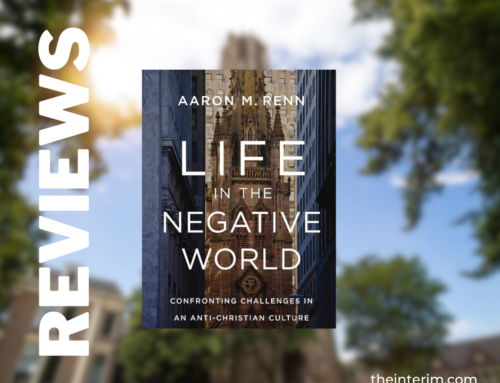The impending doom that underlied the news stories when the world’s population reached six billion earlier this year is unfounded, and worse, a sign of the devaluation of human life.
There is little reason to believe that the earth becomes a worse place to live with each new person. However, Princeton University “ethicist” Peter Singer seems to believe so. He stated in his 1994 book, Rethinking Life and Death, that the biblical injunction to be fruitful and multiply “may have been apt for its time, but with world population having risen from two billion in 1930 to over five billion today, and projected to go to 11 billion by the middle of the next century, it is unethical to encourage more births.”
He goes on to faithfully catalogue the fears of the Chicken Littles who warned us about natural resource shortages and global freezing in the 1970s until it got hot one day, and who now instead bleat on about global warming. The world’s growing population, Singer says, means more carbon dioxide waste that leads to more global warming that leads to melting polar caps and before you notice the 35-degree Celsius weather, islands and coastal cities disappear. Where there aren’t floods, there will be droughts that lead to food shortages, and those who didn’t drown will surely starve.
In his 1968 book The Population Bomb, Paul Ehrlich predicted rising consumer prices, famines, more wars, and decreasing lifespans. In fact, consumer prices are down, the caloric intake in the developing world is increasing, lifespans in almost every place but Russia and Zimbabwe are increasing, and countries, as they have been since the beginning of the nation-state, are in conflict.
But despite the failed predictions of yesteryear, in the world view of those who continue to fear population growth, women who do not have abortions and couples who do not use contraceptives are responsible for no less than the end of the world.
The assumptions that the gloom and doomers make are, however, seriously flawed. For instance, they assume that technological changes won’t yield more efficient ways to make food or burn fuel. Also, they fail to take into account the West’s decreasing fertility rate (below replacement levels in many countries), or that the developing world is beginning to follow our lead.
Ben Wattenberg, a one-time staffer for U.S. president Lyndon Johnson, later a demographer and now a fellow at the American Enterprise Institute, is incredulous with those who decry population growth. He notes that from 1970 to 1990, fertility rates among the poor decreased 60 per cent and that a National Academy of Sciences study concluded that there is no impending shortage of natural resources. Sure, population grows, but due to the decreasing fertility rates it will stabilize soon. Wattenberg says that the figure of 12-15 billion by 2050 is exaggerated, and that the number is likely to be closer to eight billion.
To counter population growth, the United Nations Population Fund and the International Planned Parenthood Federation are waging an unholy war to push abortion and contraception on the developing world. Acceptance of this agenda is often a trade-off for foreign aid. Interestingly, Ehrlich proposed that contraceptive chemicals be put in drinking water to ebb population growth.
Furthermore, anti-population-growth scare mongers fail to recognize the dangers of fertility rates falling below replacement levels as the population grows older. As Peter Peterson points out in his recent book Gray Dawn: How the Coming Age Wave Will Transform America – And the World, there are important economic issues that arise when the number of elderly grow but the number of young workers don’t; namely, the tax base to support the welfare state – medicare and pensions mostly – shrinks.
The underlining sentiment of the anti-population-growth arguments is anti-life – or anti-human life, at least. Former Colorado governor Richard Lamm, echoing Paul Ehrlich, said man “is a cancer on the earth.” Wattenberg reports that after the release of his book, The Birth Dearth, a woman approached him and said, “I wanted to have another child, but I was made to feel guilty that I would pollute the world, so I didn’t.” How long will it be, considering society’s callousness in disposing of inconvenient ife at its beginning, until the increasingly costly and inconvenient elderly are disposed of?
The pro-environment attitude, that is either consciously or coincidentally anti-life, must change. Understanding and accepting the dignity of every person is the first step to making the necessary changes to improve everyone’s standard of living.
All six billion of us.




